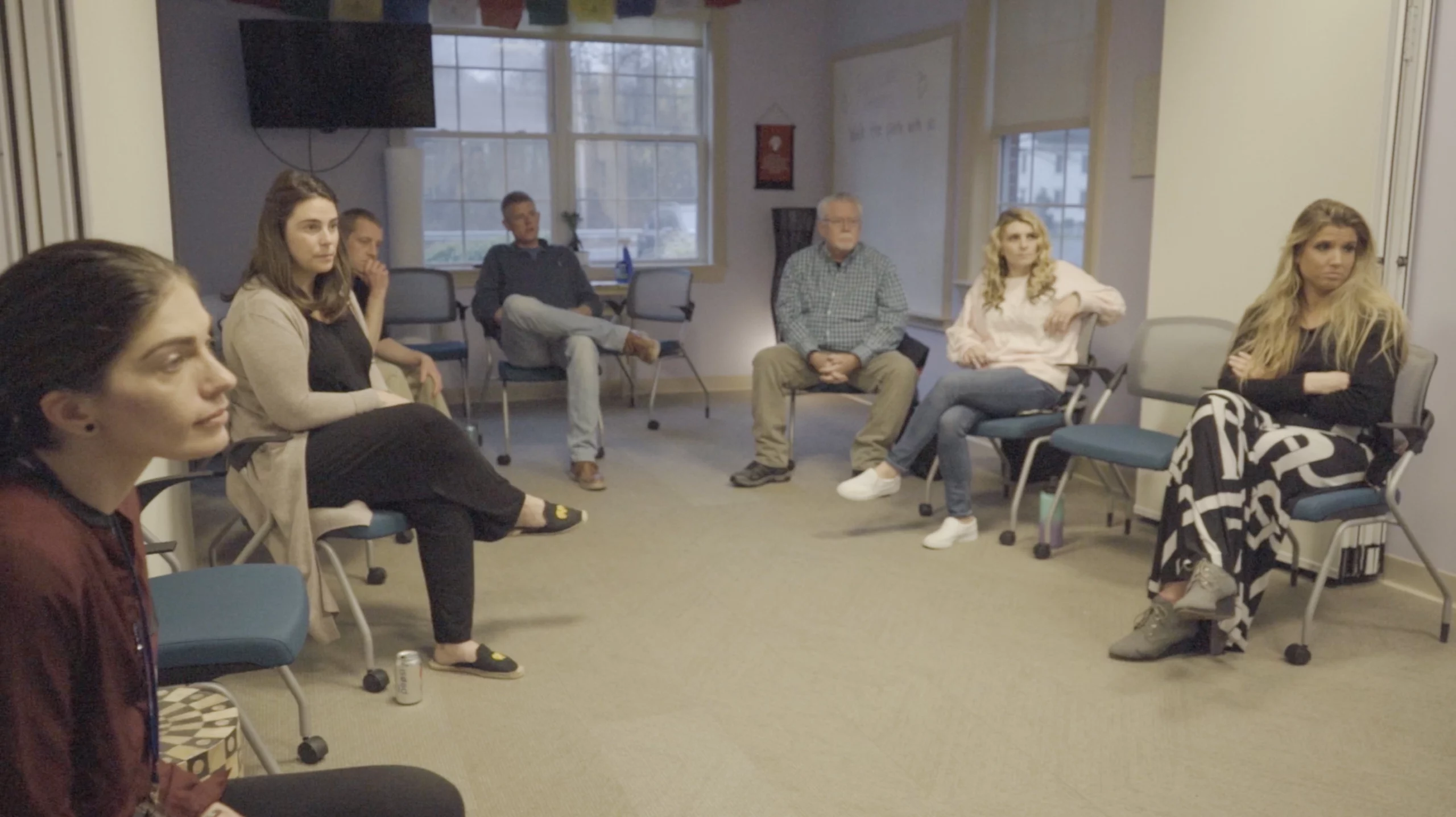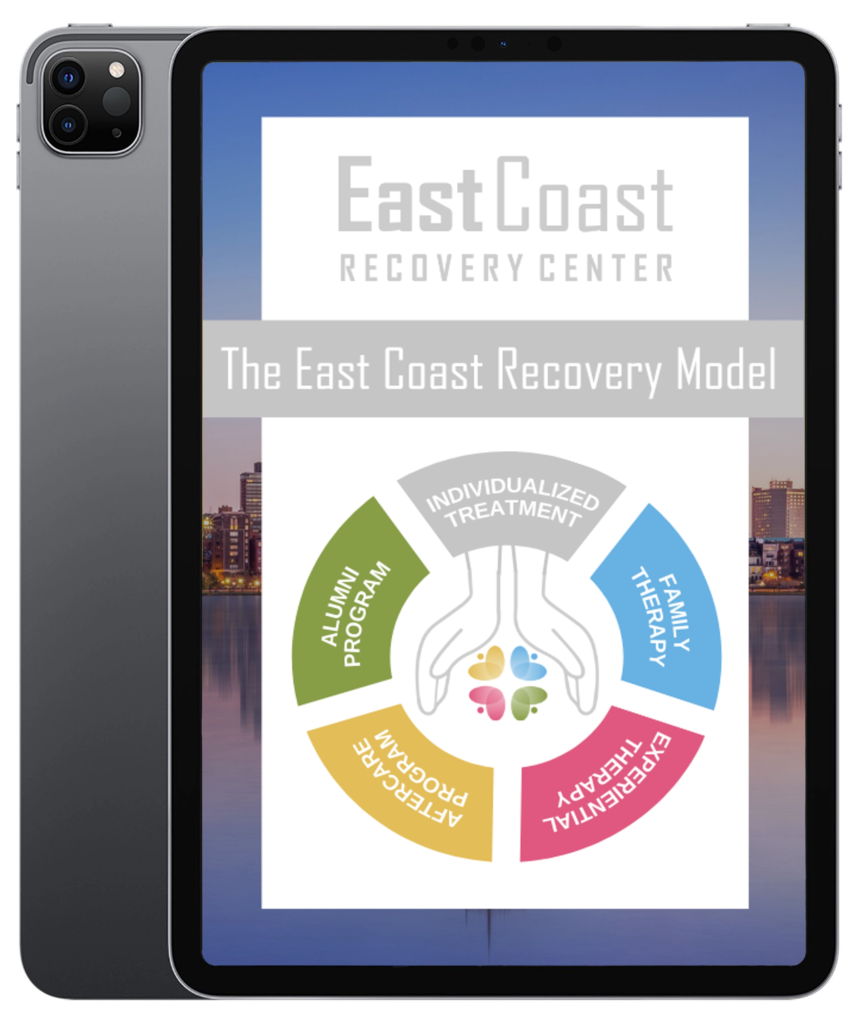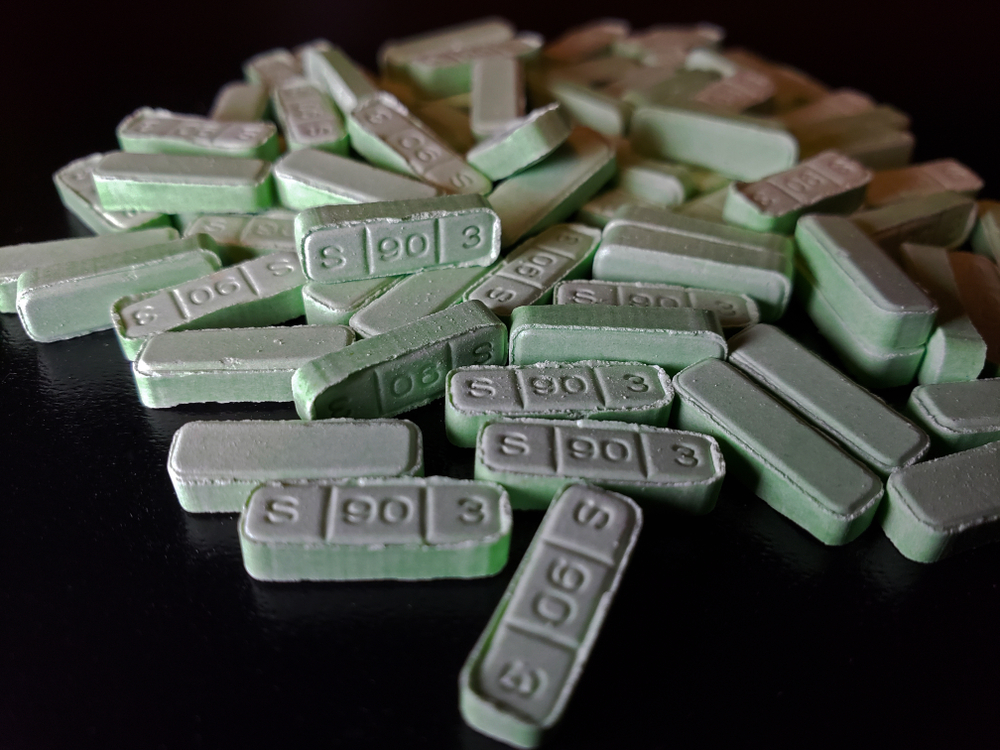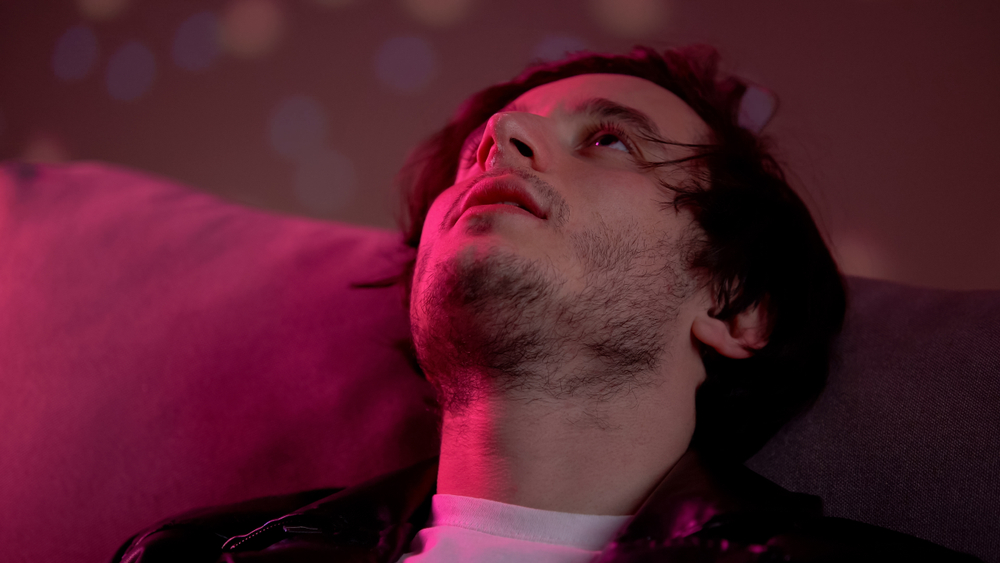Over the last few decades, the category of drugs known as benzodiazepines (also referred to as “benzos”) has gained popularity as both a medication with legitimate medical uses and a commonly misused street drug. In fact, the rate at which benzos are prescribed in the United States is relatively high.
The Centers for Disease Control and Prevention (CDC) determined that 37.6 prescriptions for benzodiazepines were written per 100 persons in the United States in 2012. This rate is even higher when talking about prescription rates in Massachusetts alone, where it was determined that there were 48.8 prescriptions written for benzodiazepines for every 100 persons.
Along with these staggering prescription numbers, the rates of drug overdose deaths caused by benzodiazepines have increased steadily between 2001 and 2014. The National Institute on Drug Abuse (NIDA) reports that there were fewer than 1,750 deaths due to benzo overdose in 2001, but by 2014, nearly 8,000 people lost their lives due to benzodiazepine use.
To better understand the widespread availability of benzos, and in turn, understand why benzodiazepine addiction is such an issue, it is important to know what these drugs are, why they’re prescribed, and the best approaches to treatment.

Benzo addiction is dangerous and potentially life-threatening, so it’s crucial to acknowledge the risks that come with its use. It’s also important to seek treatment if you feel that you or a loved one has developed an unhealthy relationship with benzodiazepines. Fortunately, there are various treatment options available to help.
In a Partial Hospitalization Program, patients receive intensive therapy and any medical care that may be required during a “day rehab” session. This includes individual or group counseling sessions, aftercare treatment planning, and continued medication to alleviate lingering withdrawal symptoms. Each individual’s needs are taken into account to create a specific treatment plan. They then return to a sober living residence at the end of each 4 to 8-hour treatment day. Partial hospitalization programs typically last about 3 to 4 weeks.
Individuals with minimal benzo addiction or those transitioning from more intensive rehab programs, such as a Partial Hospitalization Program, may benefit from intensive outpatient programs. These programs consist of a general daytime schedule incorporating various therapies and drug tests. Patients may return to their everyday responsibilities, such as household chores or employment, or they may reside with family or friends in a supportive environment during an IOP.
The price of addiction treatment varies between facilities. Health insurance policies are required by the Affordable Care Act (ACA) to provide at least partial coverage of drug and alcohol addiction treatment. This includes private health insurance, Medicaid, Medicare, state-financed health insurance, and military insurance. To get an idea of exactly how much a specific rehab program will cost, it is best to contact your insurance provider (if you have one) and have them inform you of your coverage. You may also contact the specific treatment center to see what insurance they accept or if payment plans are available. In the long run, rehab is less costly than drug and alcohol addiction.
The duration of rehab is contingent on unique circumstances. While short treatment programs that include detox, therapy, and supportive care might be beneficial for some individuals, treating substance use problems is a complex procedure that may take years. Although it may seem preferable to finish rehab as rapidly as possible, research indicates that longer stays in rehab lead to lower relapse rates.
Rehabilitation is customized to the individual and involves lengths of stay based on the severity of addiction, the rate of improvement, and other factors. People with severe drug or alcohol issues, particularly those that coincide with mental illness, may require extended treatment. A quality rehab center will provide clients with a customized program.
The process begins with a phone call, during which prospective patients contact their facility of interest and complete pre-admission screening forms. You can organize your treatment based on your personal preferences and practical needs. Substance abuse history, treatment options, and payment arrangements are all discussed. After your initial assessment, you’ll be able to collect your belongings and head to check in at the facility. It may take a few days to a few weeks to finish the process, so it is best to work quickly once you’ve decided to get help.

Download Our FREE East Coast Recovery Model eBook
Despite the fact that completing a rehabilitation program is an impressive accomplishment, staying sober is a lifelong process. It will take some time to get back to where you were before your addiction. However, there are many individuals who want to help you succeed in life after rehabilitation. Here are some suggestions on how to stay active in recovery.
Aftercare is a type of continued care for benzodiazepine addiction treatment. Aftercare has been shown to result in better long-term outcomes for addiction treatment in general. In these programs, clients receive continued support and reinforce the abstinence skills and strategies they were taught during treatment. An aftercare program usually consists of individual and group therapies, support groups, and alumni events.
Residents can establish or maintain sobriety in an alcohol and drug-free environment at a sober living house. Through peer support, sobriety-establishing and -maintaining recovery techniques, peer empowerment, and individual responsibility, residents may prepare for life after rehab or independent living. Residents receive and provide support from one another and from leaders in their community in a recovery housing model. Communal living has been shown to decrease substance abuse and incarceration rates, as well as increase employment rates. Individuals can hone their coping skills, learn how to communicate effectively, and trust themselves as a result.

Benzodiazepines (commonly known as “benzos”) are sedative drugs used to treat a variety of medical conditions in the central nervous system. They work by binding to specific GABA-A receptors in the brain and making nerve stimulation less intense. Benzodiazepines act on these receptors and make the brain’s nerves less responsive to stimulation, resulting in a calming effect.
Benzodiazepines are a categorical classification of drugs that include medications commonly prescribed in order to treat anxiety disorders, including generalized anxiety disorder, panic disorder, and social anxiety.
They come in both short-acting and longer-acting forms. Short-acting benzos, such as lorazepam (sold under the brand name Ativan®), are commonly prescribed for people who suffer from panic attacks and acute episodes of anxiety because the onset of their effects is felt more rapidly than antidepressants (which can take weeks to fully take effect). Longer-acting versions of benzodiazepines may be prescribed for situations in which short-acting types are ineffective or inappropriate.
Oftentimes, benzodiazepines are prescribed in order to treat insomnia, especially if the inability to fall asleep or stay asleep is related to anxiety issues. In fact, a certain type of benzo was developed to specifically treat insomnia, which we will discuss in the next section.
Additionally, benzos are often used as a tool for the detox treatment of individuals that are struggling with severe symptoms of alcohol withdrawal. They also have legitimate use as an anticonvulsant for the long-term treatment of seizures caused by epilepsy.
No matter the reason that benzodiazepines were prescribed, the goal is to make use of the drug for as short a time as possible. This is because they are highly potent and dangerous drugs that carry a high risk for addiction. Any prescribed regimen of benzodiazepine should be monitored very closely by a physician.
The danger of addiction when discussing benzodiazepines lies in the way that they interact with the brain. According to the National Institute on Drug Abuse, benzodiazepines cause a minor but marked shift in the chemical signals that the brain uses to mark a pleasurable event. When a benzo takes effect, that shift in brain chemistry causes the user to feel a boost in the sensation that is associated with reward, contentment, joy, and security. When it comes to prescription drug abuse, benzos are so dangerous because they cause persistent chemical changes in the brain.
After a period of use, the sections of the brain that have been altered by benzo use may not be able to function at an optimal level without the presence of the drug. This is the basis of physical addiction. All drugs that fall under the umbrella of benzodiazepines have a great potential to cause these addictive changes in the brain, but there are a few of note that are the most concerning. We’ve outlined them below:

This iteration of the drug is most commonly prescribed to treat anxiety and panic disorders, and it comes in a variety of different dosages. The type of Xanax that is particularly concerning is a time-released type of drug that is specifically designed to release the effects of benzodiazepines over a period of time. People who use this type of Xanax in an illicit manner often crush up the pill, receiving the effects of the drug all at once as opposed to being released over time. This leads to a high potential for unintentional overdose.
Klonopin is often prescribed to individuals who suffer from panic disorders and seizure disorders. They are an immediate-acting type of benzo that come in a 1 mg or 2 mg pill. Some of these types of Klonopin are made to dissolve or disintegrate in the mouth, leading to an even quicker onset.
Valium is the oldest, most commonly prescribed benzo that is still on the market today. It is used to treat anxiety disorders, muscle spasms, and the symptoms severe alcohol withdrawal symptoms. This drug has many generic formulations and comes in a number of different strengths, including some that are time-released. There is a lower risk of immediate overdose with Valium, as it takes a long time to take effect in the brain. The effects of the drug tend to come on slower and are less rewarding for people who misuse the drug as a result.
This type of drug was formulated to help people who suffer from panic disorders. It can come in pill format, or it can be administered intravenously in liquid form. This iteration of the drug has a high potential for substance abuse as its effects can take hold immediately.
This benzo was created to help people with insomnia to sleep through the night. The sedative effects of the drug help people to fall asleep. There are people who misuse this drug, but it isn’t as common because of its sedative nature.
If you feel that you or a loved one has developed an unhealthy dependence on a benzo medication, it is crucial to stop use as quickly as possible. It is safer to taper your medication under the supervision of your physician if you have been taking benzodiazepines regularly for over 4 weeks. Withdrawing slowly is safer for most patients with withdrawal symptoms being more likely to occur if you don’t. Although benzodiazepine withdrawal symptoms can be difficult to manage, your pharmacist or doctor may be able to help you if they do appear. Antidepressants and mood-stabilizing medications can assist with withdrawal symptoms. If you suffer from insomnia, you might benefit from a melatonin supplement. Cognitive behavioral therapy can help those with panic disorders as they come off the medicine.
Like any drug with legitimate medical uses, there are signs to look out for that may suggest that the therapeutic use of benzos has turned into misuse. The signs will undoubtedly vary from person to person depending on the type of benzodiazepine they are using, the dose, and the potential polysubstance use of drugs or alcohol.
In general, there are some signs to look out for when trying to determine whether or not a person is misusing benzodiazepines. We’ve outlined them below:
At higher benzo doses, a person may experience all of the above along with

Benzodiazepines can have profound impacts on the neurotransmitters of the brain. Think of neurotransmitters as the way that the brain communicates with the different systems of the body. The National Institute on Drug Abuse (NIDA) reports that benzo use enhances the activity of a specific neurotransmitter in the brain called gamma-aminobutyric acid (GABA). The result of this impact is the slowing down of nerve impulses throughout the body, leading to a calming and relaxing effect on its user.
How rapidly this effect takes place depends on the type of benzo used and its dosage. Benzos with a short-acting effect tend to take effect quicker and are processed out of the body quicker than longer-acting types. This means that short-acting benzos are relatively safer to use than long-acting types. Because long-acting benzos remain in the body longer, they can begin to accumulate with regular use and ultimately become overwhelming to the user. This risk is heightened severely if the person also uses other drugs or alcohol, in a phenomenon known as polysubstance use.
Benzodiazepines can have profound impacts on the neurotransmitters of the brain. Think of neurotransmitters as the way that the brain communicates with the different systems of the body. The National Institute on Drug Abuse (NIDA) reports that benzo use enhances the activity of a specific neurotransmitter in the brain called gamma-aminobutyric acid (GABA). The result of this impact is the slowing down of nerve impulses throughout the body, leading to a calming and relaxing effect on its user.
How rapidly this effect takes place depends on the type of benzo used and its dosage. Benzos with a short-acting effect tend to take effect quicker and are processed out of the body quicker than longer-acting types. This means that short-acting benzos are relatively safer to use than long-acting types. Because long-acting benzos remain in the body longer, they can begin to accumulate with regular use and ultimately become overwhelming to the user. This risk is heightened severely if the person also uses other drugs or alcohol, in a phenomenon known as polysubstance use.

Benzo withdrawal symptoms are physically and emotionally painful, and can even be life-threatening if the user withdraws “cold turkey.” Withdrawal symptoms are frequently intense and transient, and they may vary in magnitude and frequency throughout all phases of the withdrawal procedure. Rebound symptoms are among the most frequently encountered Benzo withdrawal symptoms, and they tend to appear within one to four days after discontinuing use, depending on the Benzo used, the amount consumed, and the frequency of use. These symptoms typically last for about ten days and include:
The duration of time that benzodiazepines remain in the body varies depending on the brand. Withdrawal symptoms from shorter-lived benzodiazepines begin sooner than those from longer-lived ones because their half-lives (time spent in the body after consumption) are shorter. The first signs of withdrawal from shorter-lived benzodiazepines are usually observed within 6 to 8 hours, and those from longer-lived benzodiazepines are within 24 to 48 hours. People typically experience severe withdrawal symptoms when they cease using short-lived benzodiazepines. Long-lived benzodiazepines produce less severe withdrawals, and symptoms take longer to appear.
Longer, more frequent, higher-dose, and/or longer-term usage of benzos all increase the length of withdrawal. Withdrawal symptoms may be overcome in as little as seven days in mild addictions. Users are weaned off the drug slowly to prevent life-threatening withdrawal symptoms, which can take up to three months as a result of prolonged, higher-dose, and more frequent usage.
Many Benzodiazepine addictions go undetected by users or loved ones, as they develop without warning. Even when taken as prescribed by their doctor, Benzodiazepines can lead to addiction. Irregular behavior or signs of Benzodiazepine addiction might emerge if a user seeks more intense effects after the drug has expired or has been terminated. A person may need professional help if they begin to exhibit any of these behaviors:
Long-term benzodiazepine use can damage major organs such as the heart, liver, kidneys, and brain, leading to cognitive impairment. The brain controls impulses, pleasure-seeking, and other cognitive functions necessary for daily life. Benzos can cause brain damage, which can be reversed, but only through abstinence and treatment. Drug abuse is a chronic disease, and treating it as such can help with treatment. A lifelong battle such as addiction requires a lifelong commitment to recovery and health maintenance. If treatment is not given over a long period of time, there is a high likelihood of relapse and disease progression.
According to the Centers for Disease Control and Prevention (CDC), Massachusetts overdose death rates are amongst the highest in the nation. The overdose fatality rate in Massachusetts in 2015 was 25.7 per 100,000 individuals, compared to the national fatality rate of 16.3 per 100,000 individuals. Benzos were connected to 38% of overdose deaths in Massachusetts in 2017 and were only exceeded by fentanyl, heroin, and cocaine, according to the Massachusetts Department of Public Health (DPH).
There are many types of treatment programs for benzodiazepine addiction in Massachusetts, and they may be provided either as inpatient or outpatient treatment. The individual’s needs and circumstances will dictate the kind of assistance and support that is most appropriate for them.
There are many questions that you may have when deciding to seek treatment for issues with benzodiazepine use. We’ve compiled a few of the most frequently asked questions below:
Flumazenil is a drug that blocks benzodiazepines from interacting with the GABA receptors of the brain, rendering the effects of the drug useless. It is the only antidote that is approved to stop benzo overdose and help with benzo withdrawal symptoms.
Benzodiazepines do have legitimate medical use in the treatment of epilepsy, insomnia, and various anxiety disorders. The majority of benzo prescriptions are meant to be very short-term in their use until the problem is resolved. Long-term use, even under close medical supervision, can lead to physical and psychological addiction.
After a period of use, the body begins to build a tolerance for benzodiazepines. This means that it will require more of the drug to get the same effects. After a period of not using the drug, the tolerance will return to where it was prior to use.
Long-term use of benzodiazepines is never recommended, and the drug is mainly used as a short-term solution to anxiety and insomnia issues. Long-term use, even under close medical supervision, can lead to physical and psychological addiction.
Support groups for benzo addiction can provide the inspiration addicts require to continue on their sobriety journey since they are able to connect with others who are experiencing similar situations in their lives. Here is a list of support groups in and around Boston, Massachusetts:
10:00 AM
Morning Break
155 Humboldt Ave, Dorchester, MA,
12:00 PM
Noontime Everyday (Online only)
Online only
7:30 PM
Miracle On The Mile
Barbara McInnis House
780 Albany Street, Boston, MA,
10:00 AM
Morning Break
155 Humboldt Ave, Dorchester, MA
12:00 PM
Noontime Everyday (Online only)
Online only
7:30 PM
Clean & Proud
Fenway Neighborhood / K-Street Facility
69A Kilmarnock Street, Boston, MA
10:00 AM
Staying Clean In the Quarantine (Online only)
Online only
Boston, MA
6:30 PM
We Never Have To Use Again
6 Southbourne Rec Room
6 Southbourne Rd. Jamaica Plain, MA
7:00 PM
Our Primary Purpose (Online only)
Online
Boston, MA
10:00 AM
Morning Break
155 Humboldt Ave, Dorchester, MA
12:00 PM
Noontime Everyday (Online only)
Online only
7:00 PM
Text Message
4th Presbyterian Church
340 Dorchester Street, South Boston, MA
10:00 AM
Morning Break
155 Humboldt Ave, Dorchester, MA
6:00 PM
Paycheck
Marcus Garvey Center
116 Roxbury Street, Roxbury, MA
7:00 PM
Never Alone
YWCA
7 Temple Street, Cambridge, MA
10:00 AM
Morning Break
155 Humboldt Ave, Dorchester, MA
7:00 PM
How It Works
Fourth Presbyterian Church
340 Dorchester Street, Boston, MA
10:00 AM
Morning Break
155 Humboldt Ave, Dorchester, MA
6:30 PM
End Of The Line
Forest Hills Covenant Church
50 Morton Street, Jamaica Plain, MA
7:00 PM
Serenity By The Sea
Saint John's Parish Hall
222 Bowdoin Street, Winthrop, MA
At East Coast Recovery, we realize and celebrate that there are many paths to recovery. That’s why we offer a myriad of different addiction treatment programs, therapies, and modalities to find the approach that works for you. We offer an intensive outpatient program (IOP), partial hospitalization program (PHP), Family therapy, Dual diagnosis treatment, Aftercare program, and more. Your journey may differ from the journeys of others, but we’ll be there every step of the way, guiding you toward the path that is most effective in helping you achieve your goals in recovery.
Call us today at (617) 390-8349 to get started on your journey toward success in recovery.









